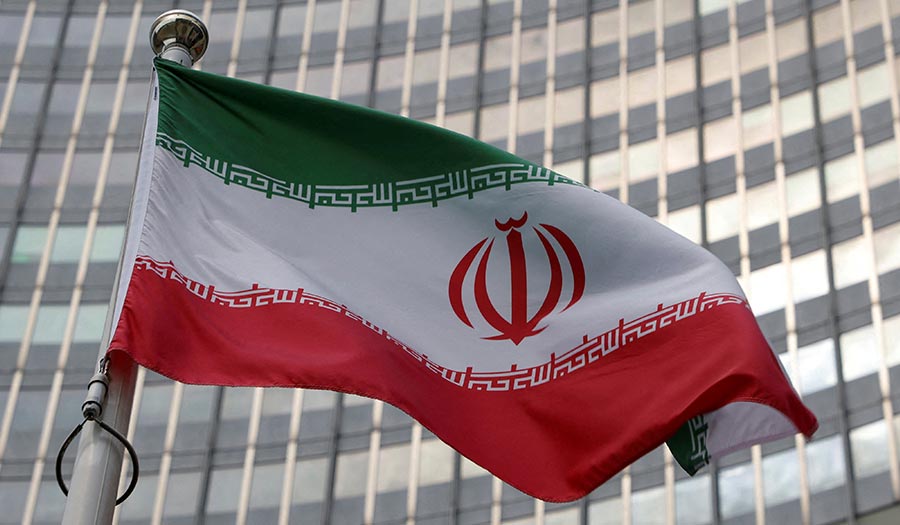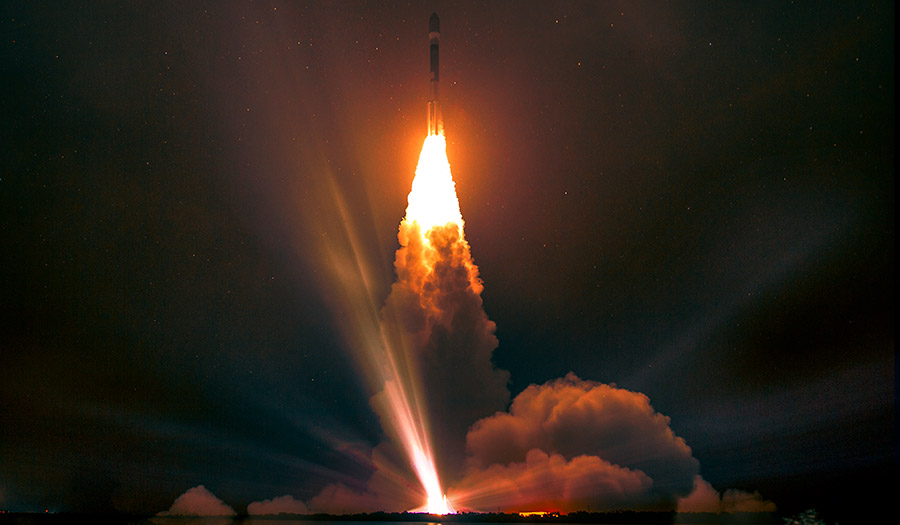 REUTERS/Leonhard Foeger
REUTERS/Leonhard Foeger
World News Desk
Learn the why behind the headlines.
Subscribe to the Real Truth for FREE news and analysis.
Subscribe NowWASHINGTON/VIENNA (Reuters) – Iran’s limited steps to slow its buildup of near-weapons-grade uranium may help ease U.S.-Iranian tensions but do not signify progress toward a wider nuclear deal before the 2024 U.S. elections, say analysts.
According to UN nuclear watchdog reports seen by Reuters, Iran has reduced the rate at which it is making uranium enriched up to 60 percent purity, close to the roughly 90 percent that is weapons grade, and has diluted a small fraction of its 60 percent stockpile.
But that stockpile continues to grow. Iran now has nearly enough uranium enriched to 60 percent, if refined further, for three nuclear bombs, according to the International Atomic Energy Agency’s (IAEA) theoretical definition. It also has enough uranium enriched to a lower level to make even more bombs.
Iran has also failed to resolve IAEA concerns about uranium traces found at two undeclared sites or to make progress on restoring monitoring cameras despite long-standing pressure from the IAEA and Western powers to do so.
Nonproliferation analysts say Iran’s nuclear slowdown may be enough for the United States and Iran to keep exploring what they describe as “understandings”—which Washington has never acknowledged—to lower tensions over nuclear and other issues.
That does not necessarily imply any real curbs to Iran’s nuclear program ahead of the November 5, 2024 U.S. election, they said, but it may help U.S. President Joe Biden avoid a politically damaging crisis with Iran as he seeks re-election.
“The slowdown of the 60% accumulation is a clear sign Tehran is open to advancing the de-escalatory ‘understandings’ with Washington,” said Henry Rome of the Washington Institute for Near East Policy.
Mr. Rome said the slowdown and expectations of a U.S.-Iranian prisoner exchange this month, set “the stage for additional diplomacy this fall around the nuclear program, albeit without the goal of reaching a new deal until after the U.S. presidential elections.
“For Washington, there is probably a low bar for what Iran needed to do for the purposes of ‘de-escalation,’ “he added. “Iran has likely crossed that bar.”
Iran Not ‘Pumping the Brakes’
Mr. Biden’s main objective appears to be keeping a lid on tensions, which range from Tehran’s nuclear program to attacks by Iranian-backed militias on U.S. interests in the Middle East.
“Iran has taken its foot off the gas in some areas but it’s not pumping the brakes on the nuclear program,” analyst Eric Brewer of the Nuclear Threat Initiative said of Iran’s recent steps, calling them “de-escalation lite.”
“The nonproliferation value of the steps Iran took is relatively small, but the point of the [U.S.] de-escalation policy isn’t to solve the nuclear program right now but to build in a political cushion and avoid a crisis,” he said.
“Until next year’s election, it seems the administration wants calm and is willing to pay the price in vast enrichment of the Iranian regime,” said Elliott Abrams, former U.S. President Donald Trump’s special representative for Iran now at the Council on Foreign Relations.
Mr. Abrams was alluding to rising Iranian oil exports despite U.S. sanctions and the transfer of $6 billion in Iranian funds from South Korea to Qatar as part of the prisoner exchange.
While the Biden administration has argued that the money is going from one restricted account to another and can only be spent for humanitarian purposes, it seems clear Iran will have greater access to them in Qatar than it did in South Korea.
The State Department has danced around whether it has struck any ‘understandings’ with Iran in part because an admission that it has cut a deal with Tehran over the Iranian nuclear program could by law trigger a U.S. congressional review.
A State Department spokesman on Tuesday said he had nothing to add beyond mid-August comments in which the department denied any U.S.-Iran nuclear pact and did not rule out the possibility of unwritten understandings.
After taking office in January 2021, Mr. Biden tried to revive the 2015 Iran nuclear deal under which Iran had restricted its nuclear program in return for relief from U.S., European Union (EU) and UN sanctions.
Mr. Trump, a Republican, reneged on that deal in 2018, arguing it was too generous to Tehran, and restored broad U.S. economic sanctions against Iran.
Efforts to revive that deal appeared to die about a year ago, when diplomats say Iran rejected what EU mediators called their final offer.
Diplomats regard that deal as beyond resurrection because of Iran’s advances—notably in running advanced centrifuges that have a much bigger output—but analysts said there may be room for more serious nuclear talks after the U.S. elections.
Asked why Iran slowed its program, a Western diplomat said “I think that’s part of discussions that they’ve been having with the U.S. and it’s part of the wider deal, the non-deal deal.”
“It’s better than nothing, but I would hardly count it as a massive bit of progress,” he added.
- Real Truth Magazine Articles
- INTERNATIONAL
 Nuclear War: Will Mankind Destroy Itself?
Nuclear War: Will Mankind Destroy Itself?
More on Related Topics:
- China Has Expanded Its Nuclear Force and Strengthened Ties to Russia, the Pentagon Says
- North Korea’s Kim Again Threatens to Use Nuclear Weapons Against South Korea and U.S.
- Russia and North Korea’s Partnership
- Hamas and Fatah Agree to Form a Government. What Does It Mean and Who Are These Palestinian Groups?
- President Biden’s Withdrawal Injects Uncertainty into Foreign Policy Challenges


